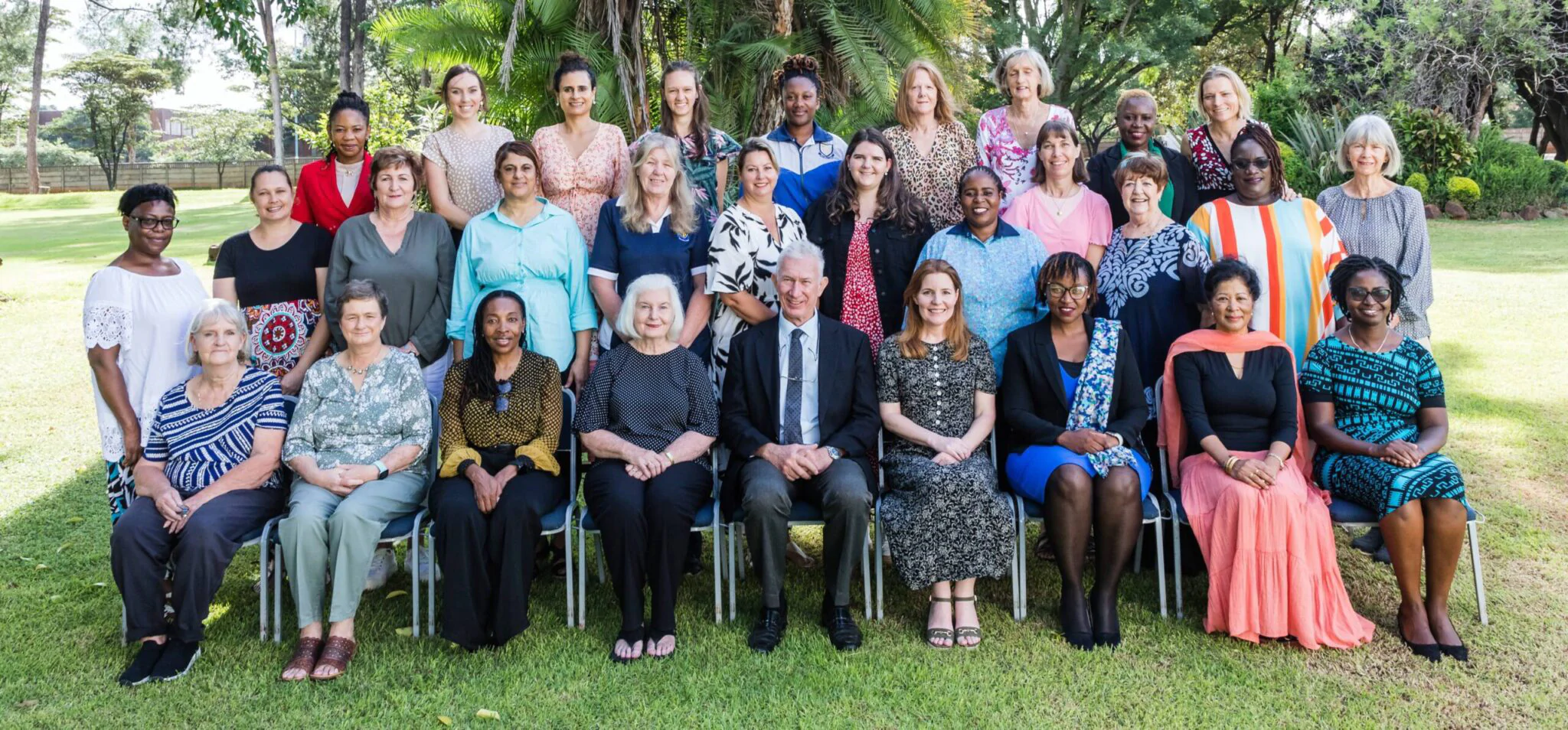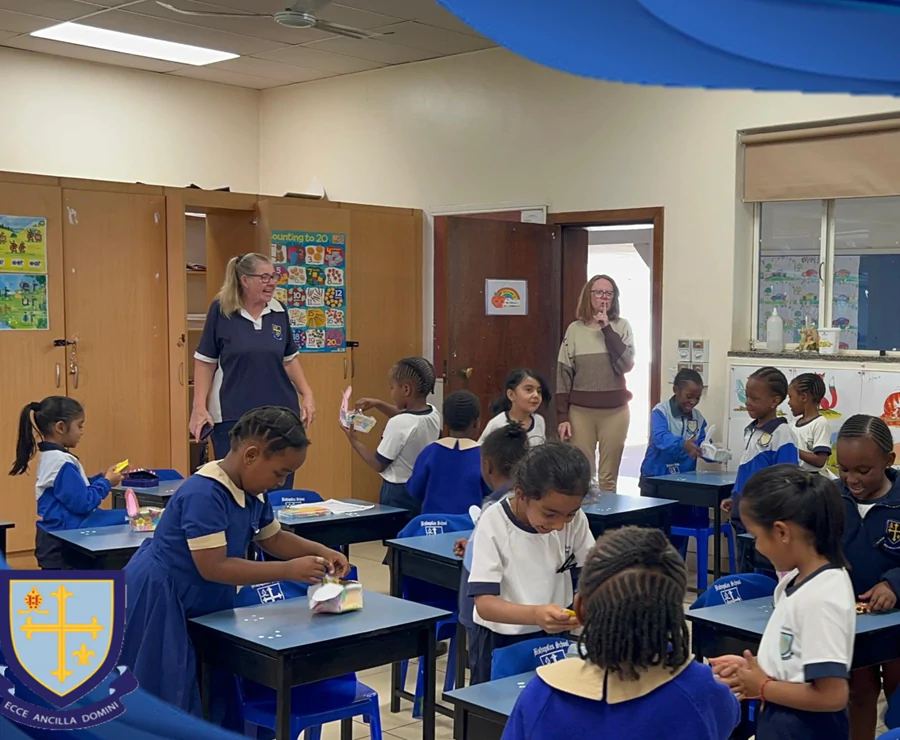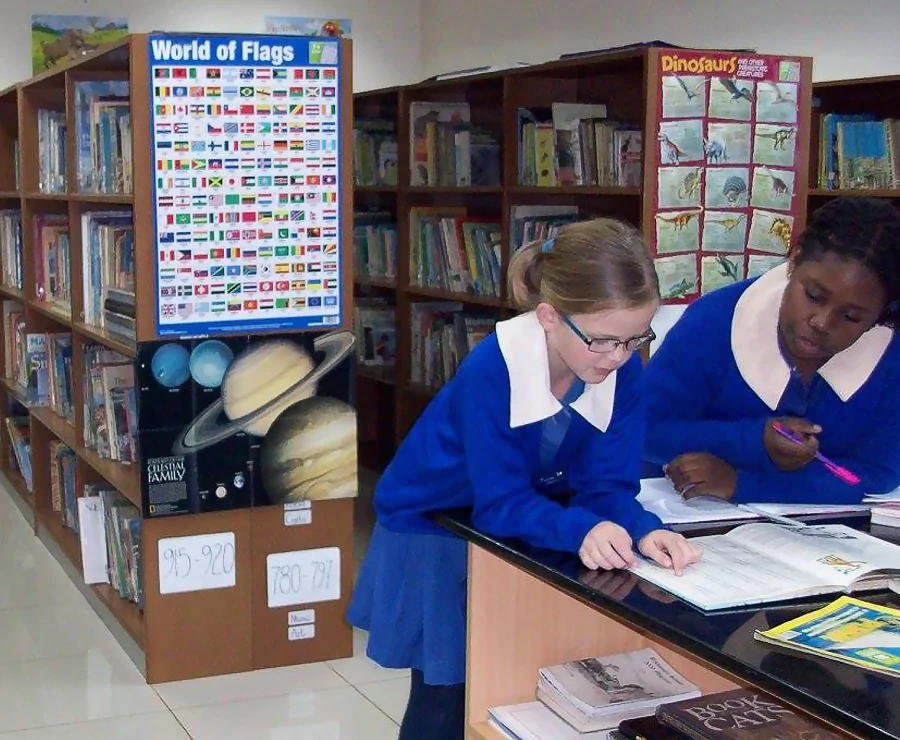At Bishopslea, our academic programme is carefully structured to support every stage of a child’s development—from the foundations laid in Early Childhood Development to the challenges and growth of Grade 7. Each level is designed to nurture confidence, curiosity, and competence, with support systems like the Enhanced Learning Programme ensuring that every learner is guided to reach their full potential.
Mrs. Sheila Murphy
Miss Bridget Beechey
Mrs Kelly Baisley
Our ELP Programme is often misunderstood as it is presumed that the program is a Remedial Program. The ELP classes, of which there are four from Grade 3 to Grade 6, are mainstream classes as they follow the syllabus and the curriculum as prescribed for each of the Grades. Each class has their own teacher and follows the same routine, extracurricular, specialist teaching and sporting activities that all Bishopslea pupils do.
What differs is that the ELP classes cater to pupils with specific learning difficulties such as dyslexia, ADD and ADHD, but who have high potentials as ascertained by Educational Psychologists. Generally, these pupils under achieve significantly compared to their potentials, but given the right environment, support and guidance can excel.
Historically, these pupils would receive extra assistance from our Remedial Department. However, as these pupils needs differed significantly from others in the Remedial Department, we saw the necessity for a dedicated programme and classes.
The significant differences in the ELP classes are that they are limited in size to a maximum of nine pupils per class and the teaching methods are personalized and objective orientated so as to keep pupils’ attention, interest and, indeed, appeal to their intellects.
The overall objective is to build confidence and self-esteem and to identify and develop pupils’ individual strengths and interests while simultaneously offering support and assistance in weak areas.
Our ELP classes were established in May 2016. The success of the program has far exceeded our expectations. The caring environment has given the pupils, who have been in the classes, a chance to progress, succeed and, most vitally, enjoy the educational process.
The invaluable lessons we have learnt from these teaching methods, styles of learning and catering to individual pupils’ needs have been invaluable, not only to our ELP classes, but to the entire school, as we incorporate and share ideas and methodologies.
Miss Sandra Blanckenberg
Mrs. Debbie Gibson
In Grade 1, the girls will have an exciting and productive year, and will learn to read, write and do number work.
From this year in Grade 1, the children will grow in self-esteem and confidence.
Mrs Barbie Horsfield
Mrs Tino Bimha
Grade 2 is an exciting year, during which the girls become more confident, independent, and proficient in their use of English.
Mrs Sandy Harley
Miss Lorna McCallum
Miss Abby Meikle
Grade 3 at Bishopslea is a crucial year as it is a transition year from Infants to the Junior part of the school. There are many changes for them as we help the children mature into responsible and independent young girls and boys (Boys can join ELP from Grade 3). We try to make the change as enjoyable and as easy for them as possible.
Mrs. Marian Cox
Mrs. Debby Derry
Ms. Stacey Hardy
Grade 4 is a pivotal year for the learners, as it marks the transition from the lower to the upper grades of the school
Mrs. Tatendwa Wanyanya
Mrs. Rakhee Morar
Mrs. K Cowper
Grade 5 is the last year the girls are in the junior part of the school
Mrs. Tricia Brooke
Mrs. Lara Holderness
Mrs. Nadene Manning
There is a big jump from Grade 5 to Grade 6.
Mrs. Aisha Omarshah
Mrs. Shahida Bezuidenhout

Back Row: Mrs. T Wanyanya, Miss. A Meikle, Mrs. R Morar, Mrs. K Cowper, Mrs. M Murerekwa, Mrs. D Gibson, Mrs. S Murphy, Miss. S Maritinyu, Mrs. S Harley
Middle Row: Mrs. P Bosha, Mrs. K Baisley, Mrs. D Derry, Mrs. S Bezuidenhout, Mrs. D Victor, Mrs. N Manning, Miss. L MacCallum, Sr. Q Kubara, Miss. B Beechey, Mrs. P Theron, Mrs. T Chirara, Mrs. B Horsfield
Front Row: Miss. S Blanckenberg, Mrs. T Brooke, Ms. P Kudita, Miss. M Cox, Mr. RJ Crook, Mrs. L Holderness, Mrs. T Bimha, Mrs. A Omarshah, Mrs. H Dahwa
Mrs. Sheila Murphy
Miss Bridget Beechey
Mrs Kelly Baisley
Miss Sandra Blanckenberg
Mrs. Debbie Gibson
In Grade 1, the girls will have an exciting and productive year, and will learn to read, write and do number work.
From this year in Grade 1, the children will grow in self-esteem and confidence.
Mrs Barbie Horsfield
Mrs Tino Bimha
Grade 2 is an exciting year, during which the girls become more confident, independent, and proficient in their use of English.
Mrs Sandy Harley
Miss Lorna McCallum
Miss Abby Meikle
Grade 3 at Bishopslea is a crucial year as it is a transition year from Infants to the Junior part of the school. There are many changes for them as we help the children mature into responsible and independent young girls and boys (Boys can join ELP from Grade 3). We try to make the change as enjoyable and as easy for them as possible.
Mrs. Marian Cox
Mrs. Debby Derry
Ms. Stacey Hardy
Grade 4 is a pivotal year for the learners, as it marks the transition from the lower to the upper grades of the school
Mrs. Tatendwa Wanyanya
Mrs. Rakhee Morar
Mrs. K Cowper
Grade 5 is the last year the girls are in the junior part of the school
Mrs. Tricia Brooke
Mrs. Lara Holderness
Mrs. Nadene Manning
There is a big jump from Grade 5 to Grade 6.
Mrs. Aisha Omarshah
Mrs. Shahida Bezuidenhout
Our ELP Programme is often misunderstood as it is presumed that the program is a Remedial Program. The ELP classes, of which there are four from Grade 3 to Grade 6, are mainstream classes as they follow the syllabus and the curriculum as prescribed for each of the Grades. Each class has their own teacher and follows the same routine, extracurricular, specialist teaching and sporting activities that all Bishopslea pupils do.
What differs is that the ELP classes cater to pupils with specific learning difficulties such as dyslexia, ADD and ADHD, but who have high potentials as ascertained by Educational Psychologists. Generally, these pupils under achieve significantly compared to their potentials, but given the right environment, support and guidance can excel.
Historically, these pupils would receive extra assistance from our Remedial Department. However, as these pupils needs differed significantly from others in the Remedial Department, we saw the necessity for a dedicated programme and classes.
The significant differences in the ELP classes are that they are limited in size to a maximum of nine pupils per class and the teaching methods are personalized and objective orientated so as to keep pupils’ attention, interest and, indeed, appeal to their intellects.
The overall objective is to build confidence and self-esteem and to identify and develop pupils’ individual strengths and interests while simultaneously offering support and assistance in weak areas.
Our ELP classes were established in May 2016. The success of the program has far exceeded our expectations. The caring environment has given the pupils, who have been in the classes, a chance to progress, succeed and, most vitally, enjoy the educational process.
The invaluable lessons we have learnt from these teaching methods, styles of learning and catering to individual pupils’ needs have been invaluable, not only to our ELP classes, but to the entire school, as we incorporate and share ideas and methodologies.

